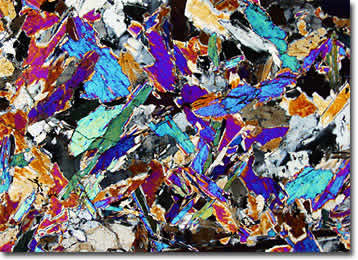Mineral and Multimineral Supplements
 Summary: A multimineral is more important to most people than a multivitamin. It is hard to get 100% RDA of calcium in the diet unless plenty of dairy products are consumed, but it is almost impossible to get 100% RDA of magnesium in the diet and this is the mineral in which the most people are deficient and one of the most important nutrients needed for overall health. Now Full Spectrum Mineral Caps is Electroherbalism's Top Rated Multimineral.
Summary: A multimineral is more important to most people than a multivitamin. It is hard to get 100% RDA of calcium in the diet unless plenty of dairy products are consumed, but it is almost impossible to get 100% RDA of magnesium in the diet and this is the mineral in which the most people are deficient and one of the most important nutrients needed for overall health. Now Full Spectrum Mineral Caps is Electroherbalism's Top Rated Multimineral.
"If we lived in a sane world, any doctor who did not recommend a magnesium supplement to every heart patient that walked through his or her door would be guilty of malpractice."
More people are deficient in minerals than vitamins, so they are usually a more important supplement. Multivitamins typically include the trace and minor minerals where the required amount is very small, such as the minor mineral zinc in which the RDA is 15mg (milligrams) or the trace mineral selenium in which the RDA is 200mcg (micrograms) or one-fifth of one milligram. Compare this to the RDA of calcium, which is 1000mg or 1g or that of magnesium which is 400mg (some say 500mg). This is not to say that a zinc or selenium deficiency is any less serious a problem than that of calcium or magnesium. It can also be harmful to one's health. See the parent Mineral section for more information, especially on the importance of magnesium.
See Supplements 101 for notes on the basic use of supplements. It includes a discussion of zinc, iron, and other supplements can upset the stomach, and since some of the products below may contain a good deal of these, some even over 100% RDA, it may be important to read.
The following two paragraphs from the Electroherbalism Multivitamin regimen are worth repeating here:
For a person looking for just a single product to use to promote health, a plain one or two per day multivitamin is not the first choice. More important for most people is using a mineral, not vitamin, supplement. Magnesium is the most important nutrient in which most people are deficient, next is calcium, and most multivitamins only contain a small amount of these "major minerals." Some multivitamins do contain significant amounts of magnesium and/or calcium, all the way up to 100% RDA or more, and these are typically the 6 or more capsules per day serving size. Some of the time, good multivitamins that include major minerals include more magnesium than calcium since it is so much more difficult to get 100% RDA of magnesium (400mg) in the diet. Many people prefer to take major minerals separately. Multivitamins are energizing. Multiminerals are relaxing and due to the magnesium content, stimulate elimination. For this reason it may be preferable to use a multivitamin that has but small amounts of calcium and magnesium during the day, and a multimineral at night before bed. Or someone might want to provide all the vitamins and minerals in a single supplement, even if it means using many capsules per day. There are a variety of ones discussed in this article all the way from the NSI Synergy Once Per Day to the 14 capsule per day Life Extension Mix caps. |
Phosphorous, sulfur, sodium, and potassium are also major minerals like calcium and magnesium, but are not supplemented as often since they are so common in food. However, sometimes supplementing some of these can be helpful if there are deficiencies or other special purposes, and there are numerous potassium supplements available as well as sulfur (mostly sold in the form of methyl sulfonyl methane also known as MSM).
Chelated minerals are more absorbable than many of the common types. For example, calcium carbonate, unless taken with sufficient acid (or protein and fat, which causes the liver and stomach to produce acid) is absorbed at perhaps 10% efficiency. Chelates are absorbed at up to 40%. Chelate forms include citrate, MCHA, amino acid chelate, aspartate, ascorbate, etc. Therefore, a supplement which contains 1000mg calcium in the form of carbonate
may be as useful to the body as one which contains 250mg calcium in the form of citrate. Minerals are also best absorbed at night, when the liver is most active (its peak activity is typically around 2 o'clock AM.)
Magnesium is an essential mineral needed by every cell of the body and helps maintain normal cardiovascular, muscle, nerve, bone, and cellular function, and even promotes calming and healthy sleep patterns. Most adults take in inadequate levels of this mineral. Researchers now believe that magnesium deficiency may contribute to various diseases, including cardiovascular conditions, pre-eclampsia, and asthma. Other common symptoms include back and neck pain, muscle spasms, anxiety, panic disorders, Raynaud's spastic vessels, arrhythmia, fatigue, eye twitches, vertigo, and migraines to name a few.
Magnesium plays a part in more than 300 enzymatic reactions, including energy production and transport, the activation of B vitamins, proper nerve function and the formation and maintenance of protein, fatty acids and bone. Magnesium is vital for cell formation, and helps to form adenosine triphosphate (ATP), the body's energy source.
Carbonate and bicarbonate forms of minerals can be put to good use decreasing excess acid in the digestive tract, neutralizing acid supplements like ascorbic acid form vitamin C, and may be more useful for purposes like mineralizing teeth and bones when the system is acid. It may even depend on one's blood type. Blood type O's appear to produce much more digestive acid than blood type A's. If someone suffers from chronic acid reflux or GERD, it is almost assured that that person is a blood type O. In this case, base or neutral forms of minerals like carbonates and oxides may be preferred to citrates and ascorbates. Amino acid chelates and MCHA (microcrystalline hydroxyapatite) forms are "neutral." MCHA forms of minerals are bound to phosphorus and are well absorbed and thought to be one of the better types to rebuild bone, which contains a great deal of phosphorus. As far as alkalizing the blood, it is the best absorbed minerals which are the most efficient.
Calcium, magnesium, and other minerals, even chelates, are best absorbed when there is sufficient acid in the stomach. This can be ensured in a number of ways.
A good way is to consume a small amount of raw walnuts or almonds with them, which provides fat and protein and causes the liver to produce bile which helps absorption. Some mineral supplements include acid components like betaine HCL which improves absorption. This is not necessary when taking chelates, but will still help.
The worst way to supplement minerals is by taking a calcium carbonate antacid (that may contain aluminum) but no magnesium to balance the calcium and with no acid to aid in absorption. Decreasing stomach acid too much for too long can cause problems, especially in the elderly who typically already have decreased stomach acid production. Following the typical MD or American Dietetic Association-qualified nutritionist's suggestion to use a base form of calcium like carbonate without magnesium can result in malabsorption of minerals, amino acids, EFAs, and some vitamins, so can make many problems, including arthritis and osteoporosis, worse. It may also cause calcium deposits in the arteries, kidney stones, and a host of other maladies caused by mineral deposits. It can also cause protein and essential fatty acid deficiencies, even when otherwise sufficient amounts are consumed, since there is not enough acid to digest them. This is why it is important to thoroughly research these matters oneself or consult someone knowledgeable in matters of nutrition and supplements.
Calcium and magnesium are necessary for muscle function, providing the mechanism for muscle contraction and relaxation, including the heart muscle. In addition to the calcium, which is so commonly prescribed, scientific literature documents the need for a wide range of minerals which are vital to maintaining strong, healthy bones. For those who have already lost bone density, the proper combination of nutrients can help restore bone mass by rebuilding the organic matrix that holds minerals such as calcium and magnesium in place.
Many people like supplements with a 1:1 ratio of calcium to magnesium since magnesium is typically harder to get in the diet, and if enough calcium is otherwise consumed, using a 1:1 supplement will yield the correct daily ratio when a calcium-rich diet is considered. Also, since magnesium stimulates elimination and is cleansing to the liver and kidneys, many people prefer a 1:1 supplement for this purpose. Calcium and magnesium supplements are available in a wide variety of ratios, with the most common being a 2:1 ratio of calcium to magnesium (e.g. 1000mg calcium and 500mg magnesium), which is a good ratio for maintenance if there is little calcium in the diet, although most mineral supplement advocates would say that a 1.5:1 or 1:1 ratio is better for maintenance. Some people like to take a 2:1 calcium magnesium and provide additional specialized magnesium as needed, such as one of the forms described below: magnesium chloride, magnesium taurinate, or magnesium malate.
Different forms of minerals have different concentrations so more or less capsules are required depending on the type to get 100% RDA. For example, magnesium oxide is an "efficient" form of magnesium since about half is magnesium and half is oxide. Magnesium citrate is less efficient since about 20% is magnesium. Magnesium chloride is 10% magnesium. Typically, though, the less efficient the source the greater the absorption by the body.
Magnesium oxide is laxative, and even chelate forms can be at first. Many welcome the reaction when cleansing. Calcium, especially calcium carbonate, tends to cause the opposite reaction, hard stools and constipation, so balancing input is important. Base forms of calcium like carbonate may increase the chances of kidney stones and other calcium deposits when taken without magnesium. Magnesium sulfate is highly laxative in large doses - it is also called epsom salts. Magnesium chloride may be a good form for increasing immune function. The only common supplement which includes magnesium chloride is not even a multimineral, it is primarily a multivitamin (see Multivitamins) - Enzymatic Therapy Doctor's Choice line - although Alta, a little known brand, makes a pure magnesium chloride supplement (see below). Magnesium is a very important mineral and probably one of the more underused ones. It alone can greatly improve many health problems.
Solaray Cal-Mag Citrate and Now Full Spectrum Mineral Caps are often recommended by Electroherbalism. They both have a 1:1 ratio of calcium to magnesium. The Solaray product contains calcium mostly in citrate form, plus magnesium citrate and oxide, in a base of parsley, alfalfa, watercress, and dandelion root which provide some trace minerals. It can be taken at half recommended full serving size in most cases (3 capsules instead of 6). Calcium citrate is much more absorbable by the body than calcium carbonate, so taking at half recommended provides a good amount of calcium (50% RDA or 500mg). It has a sufficient amount of magnesium even at half serving (125%). The citrate form of calcium helps prevent stones and deposits, and the magnesium citrate and oxide, plus the herbs in the base, help dissolve them. Using this is highly recommended for the source of calcium and magnesium
when cleansing the kidneys and liver. Stimulates elimination a good deal due to the large amount of magnesium it contains. Solaray makes another cal-mag citrate
that has a 2:1 cal:mag ratio with added vitamin D that is a good product
for maintenance. Now Full Spectrum Mineral Caps contain a microcrystalline hydroxyapatite form of calcium which means it is bound to phosphorus and similar to the form contained in bone to make it more absorbable. Contains 100% RDA zinc per 4 capsule serving and taken in divided dose, this is an excellent comprehensive mineral supplement suitable when no multivitamin will be used. NOTE that Now also makes a product called Full Spectrum Minerals and the label looks almost identical to the Full SpectrumMineral Caps product, but is a 2:1 calcium carbonate magnesium oxide type that has even more zinc plus over 100% RDA of iron, which is not recommended for most people. The Full Spectrum Caps have no iron. Full Spectrum Mineral caps are not as cleansing as Solaray Cal-Mag Citrate but are probably better to build bone.
Cardiac Research Ecological Formula's Reagent Quality Tri-Salts Bicarbonates is a very alkyline mineral supplement and is composed of bicarbonates and carbonates of calcium, magnesium, and potassium with a 1.5 to 1 ratio of calcium to magnesium. It is poorly absorbed taken without sufficient acid, but if one's digestion is typically overacid or suffers from  frequent heartburn, acid stomach, or GERD, it may be the ideal supplement, especially for use as an antiacid with immediate effect. Tri-salts is also ideal for those who want to mix it with asorbic acid (in water) to make effervescent mineral ascorbates, which is a highly absorbable form.
frequent heartburn, acid stomach, or GERD, it may be the ideal supplement, especially for use as an antiacid with immediate effect. Tri-salts is also ideal for those who want to mix it with asorbic acid (in water) to make effervescent mineral ascorbates, which is a highly absorbable form.
Enzymatic Therapy Kreb's Cycle Chelates contains a full complement of trace and complementary minerals and is especially good if no multivitamin will be used. Kreb's cycle is a type of chelate that is well absorbed and, like amino acid chelates, does not need acids to increase absorption. It comes in medium sized tablets, 4 for full dose, and is a 1.5:1 calcium to magnesium ratio.
Jarrow Mineral Balance is an advanced mineral formula from Jarrow. Includes good amounts of vitamin K (K-1 and K-2) to prevent calcium deposits plus MCHA forms of calcium and phosphorus and a good deal of trace minerals. 6 capsules is full dose and it is a 2.5:1 calcium magnesium ratio (100% RDA of both calcium and magnesium), typical of MCHA products.
Now Bone Strength is an excellent maintenance product. Like Jarrow Mineral Balance, it is a 6 per day MCHA product but with a slightly different formula. Besides minerals, it includes some glucosamine so may be more beneficial to those with arthritis and other bone or joint disorders. Now Bone Strength is the same formula as "Doctor's Trust Bone Builder with Boron" and has a 1.67:1 ratio of calcium to magnesium. The full dose is 6 capsules which provides 1000mg calcium and 600mg magnesium (taking 4 capsules per day is fine for most people) along with a complement of other minerals and vitamins, including boron and vitamins K.
 Now Coral Calcium Powder is an economical method to provide calcium and magnesium in a highly absorbable form. The best Okinawan coral calcium has about a 2:1 ratio of calcium to magnesium with a large spectrum of trace minerals, and the worst coral calcium has up to a 10:1 ratio or worse. Some companies add magnesium to bring the ratio closer to 2:1 if it is not already. Now does not rate their coral calcium for any content except calcium.
Now Coral Calcium Powder is an economical method to provide calcium and magnesium in a highly absorbable form. The best Okinawan coral calcium has about a 2:1 ratio of calcium to magnesium with a large spectrum of trace minerals, and the worst coral calcium has up to a 10:1 ratio or worse. Some companies add magnesium to bring the ratio closer to 2:1 if it is not already. Now does not rate their coral calcium for any content except calcium.
Now Calcium Magnesium is a 2:1 calcium carbonate magnesium oxide tableted product. Like many products of this type, it is very inexpensive and the tablets are large, but only two are required to provide 100% RDA calcium and 125% RDA magnesium. As mentioned above, calcium carbonate is the worst-absorbed form of calcium if there is not sufficient acid, but some may prefer this base type, especially if excess stomach acid is a problem.
Nutribiotic Ascorbate Bio-C and Nutribiotic Hypo-Aller-C are effervescent vitamin C and mineral complex that come in powder form and must be mixed in water to let bubble before use. The Ascorbates Bio-C is a 2:1 calcium to magnesium and the Hypo-Aller-C is a 1:1. Excellent to use as a mineral supplement, they also provide between 2600 and 3000mg of vitamin C per rounded teaspoon serving. The formulas are noted here since they are impossible to find online - these were taken directly from canisters of the products. Note that Bio-C has been discontinued and information provided for historic purposes. Hypo-Aller-C is still available.
Nutribiotic Ascorbate Bio-C, 1 rounded tsp contains Vitamin C 3000mg, Bioflavonoid Complex 500mg, Calcium 300mg, Magnesium 150mg, Potassium 99mg, Zinc 2mg, Manganese 1mg, Selenium 25mcg |
Nutribiotic Hypo-Aller-C, 1 rounded tsp contains Vitamin C 2600mg, Calcium 350mg, Magnesium 350mg, Potassium 100mg, Zinc 6mg |
Alta Magnesium Chloride Tabs is one of the only pure magnesium chloride oral tableted supplements available. Magnesium chloride may be one of the better forms of magnesium to stimulate immune function. Each of the medium tablets is about 600mg and supplies 62mg of magnesium.

Potassium chloride is a sodium salt substitute that is helpful to many people by balancing excess sodium in the diet. Now Foods makes potassium chloride powder. This can be mixed in a 1:1 ratio with Real Salt to provide a potassium rich mineral source used to salt food instead of pure sodium chloride. The Now product is quite reasonable and much preferred over common commercial potassium chloride products like No Salt since it is not polluted with
mineral oil and other petroleum or petrochemical products, or aluminum. See the Salt Section for more  information.
information.
Chewable Multiminerals
Chewable multi minerals are suitable for children as well as adults who do not like to swallow tablets or capsules. There are now many chewable multiminerals that contain a sufficient amount of magnesium along with calcium.
Nature's Plus Nutri-Cal Hearts contain a 2:1 calcium to magnesium ratio - 500mg calcium, 250mg magnesium, and 100IU (25% RDA) of vitamin D per serving of two hearts. Great tasting chocolate-vanilla flavor. Contains calcium in forms of lactate, aspartate, gluconate, and carbonate and magnesium as gluconate, aspartate, and hydroxide.
While this Nature's Plus is excellent due to the various forms of calcium and magnesium it contains, many of the others in this list are also very good. In particular, the Rainbow Light chewable mineral supplement contains some trace minerals, herbs, sufficient vitamin D, and vitamin K, making it the best formula.
MAGNESIUM DEFICIENCY & SUDDEN DEATH http://www.drgrisanti.com/magnesium.htm An athletic 20 year man is playing basketball and suddenly collapses on the court and dies. On a hot July day, a young and vibrant college football player suddenly makes a great tackle and never gets up.. only to be pronounced dead 5 minutes later. High School track runner dies after finishing second in a race. The sad truth is 1 out of 50,000 young adults will fall victim to Sudden Death. Most sudden deaths have been linked to a thickened, enlarged heart called hypertrophic cardiomyopathy (HCM), or by a condition that disturbs the rhythm of the heart called an arrhythmia. When one sweats, a significant amount of magnesium is lost. Magnesium is the most under-recognized electrolyte disorder in the U.S. Dr. Mildred Seelig, one of the country's leading authorities on magnesium suggests that 80%-90% of the population is deficient is magnesium. It is beyond the extent of this article why the public is being denied the truth of the seriousness of magnesium deficiency and sudden death. The amount of medical research could fill a book, but it is unfortunately being ignored. According to Micheal A. Brodsky M.D., associate professor of medicine at the University of Medicine and the director of the Cardiac Arrhythmia Service at the University of California.. mineral imbalances interfere with the heart's normal nerve function. While most athletes have been conditioned to drink a potassium rich drink after sweating.. very few have been educated on the dangers of a magnesium deficiency. Dr. Brodsky states that arrhythmia therapy should focus on replenishing two key minerals: potassium and magnesium. Almost all physicians have known for some time just how vital potassium is for normal heartbeat. Magnesium is an entirely different story, however. According to Carla Sueta M.D., Ph.D., assistant professor of medicine and cardiology at the University of North Carolina at Chapel Hill School of Medicine "apparently, many doctors still don't realize how important a role this mineral can play in some heart patients. In fact, most never check the magnesium level. She has shown through her research that magnesium reduced the incidence of several types of ventricular arrhythmia by 53 to 76 percent. Magnesium deficiency can be induced by the very drugs meant to help heart problems. Some types of diuretics (water pills) cause the body to excrete both magnesium and potassium, as does digitalis. And magnesium deficiency is often at the bottom of what's called refractory potassium deficiency. The amount of magnesium in the body determines the amount of a particular enzyme that determines the amount of potassium in the body," he explains. So if you are magnesium-deficient, you may in turn be potassium-deficient, and no amount of potassium is going to correct this unless you are also getting enough magnesium. The Best Test To Determine Your Level of Magnesium Although most physicians rarely check this important mineral, the few that do usually rely on test called Serum Magnesium. Unfortunately, this test only measures approximately 1% of the magnesium in your body.. a poor test at best. The "Gold Standard" and the most accurate test is the RBC Minerals or more commonly called Elemental Analysis in Packed Erythrocytes. This test examines the levels of eight minerals and seven toxic heavy metals. The erythrocyte is the red blood cell that floats in our serum to carry oxygen to our cells. The minerals this test analyzes from inside the red blood cell includes magnesium, manganese, molybdenum, potassium, selenium, vanadium and zinc. Another test which has proven to be extremely valuable in detecting magnesium deficiencies is called the Urine Magnesium Loading Test. In this test, the patient collects a 24-hour urine sample and the total magnesium is measured. The patient is then given a dose Magnesium Chloride 18% and another 24-hour urine specimen is collected. The magnesium is again measured. If the body retains more than a certain amount of magnesium, then it is concluded that the body is magnesium deficient. Common Symptoms of Magnesium Deficiency The most common symptoms include back and neck pain, muscle spasms, anxiety, panic disorders, Raynaud's spastic vessels, arrhythmia, fatigue, eye twitches, vertigo, migraines. Best Sources of Magnesium The best way of insuring enough magnesium is to eat a variety of whole foods, including whole grains, nuts, seeds and vegetables, preferably food grown on naturally composted soil. The green color of green vegetables is due to chlorophyll, which is a molecule that contains magnesium. Avoid refined processed foods, especially white sugar and white flour products, as most magnesium is removed from them. Dr. Grisanti's Comments: References 2:Magnes Res 1994 Jun;7(2):145-53 3:Tzivoni, Dan, M.D. and Keren, Andre, M.D., "Suppression of Ventricular Arrhythmias by Magnesium", The American Journal of Cardiology, June 1, 1990;65:1397-1399. 4:Miner Electrolyte Metab 1993;19(4-5):323-36 5:Keller, Peter K. and Aronson, Ronald S., "The Role of Magnesium in Cardiac Arrhythmias", Progress in Cardiovascular Diseases, May/June 1990;32(6):433-448. 6:Biochim Biophys Acta 1993 Oct 20;1182(3):329-32 7:Biochim Biophys Acta 1994 Jan 11;1225(2):158-64 8:"Practical Briefings: Clinical News You Can Put Into Your Practice Now. 9:Magnes Res 1993 Jun;6(2):191-2 10:Hennekens (1987) Epidemiology Medicine, p.54-98 11:Schriftenr Ver Wasser Boden Lufthyg 1993;88:474-90 12:Am J Cardiol 1992 Oct 8;70(10):44C-49C 13:Fiziol Zh SSSR Im I M Sechenova 1992 Jul;78(7):71-7 © 2001 Ronald J. Grisanti D.C., D.A.B.C.O Ronald J. Grisanti, D.C., D.A.B.C.O |
Links Magnesium Chloride In Acute And Chronic Diseases |